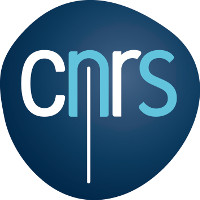Conference de l'Action Transverse Ethique (ROET)
Meaningful, Useful and Legitimate Information in Decision Making
December 4th and 5th 2023
Room A709
Université Paris Dauphine-PSL
Pl. du Maréchal de Lattre de Tassigny, 75016 Paris
Organizers
Alexis TSOUKIAS, LAMSADE-CNRS, PSL, Paris Dauphine University
Fred S. ROBERTS, DIMACS, Rutgers University
Léa DELERIS, BNP Paribas
Yves MEINARD, Centre Gilles Gaston Granger, Aix-Marseille University
Description
Decision Processes are driven by information retrieved, elaborated, constructed in order to be helpful for the process itself. Under what conditions can we trust and use such information when we need to make a decision?
In this context, a key concept is meaningfulness: The truth or falsity of a statement using scales of measurement should remain unchanged if allowable transformations of scale are made. Information that fails this condition is meaningless and can be misleading.
However, although necessary this is not a sufficient requirement. Information needs to be useful: It needs to satisfy the demands for which it has been requested, of the person or organization that is expected to use it for some decision purposes. This introduces a subjective dimension of usefulness which, unlike meaningfulness, is not formally captured and which needs to complement the one of meaningfulness.
However, once again although these two requirements are necessary, they are not sufficient. Information also needs to be legitimate: The way it is collected, elaborated and used needs to satisfy cultural, historical, organisational, legal constraints which condition the whole decision process.
The workshop will explore how formal theories can help define these requirements and provide tools in order to verify if and how they are satisfied. It will also explore how computer science can technically support the quality of the whole information pipeline engaged in a decision process, including how to check for misleading information (specially when this is deliberate).
It is open to contributions from the social sciences, including conceptual, philosophical and sociological perspectives aiming at better understanding these concepts and their contributions to trustworthiness and improved decision processes.
voir le programme complet ici

